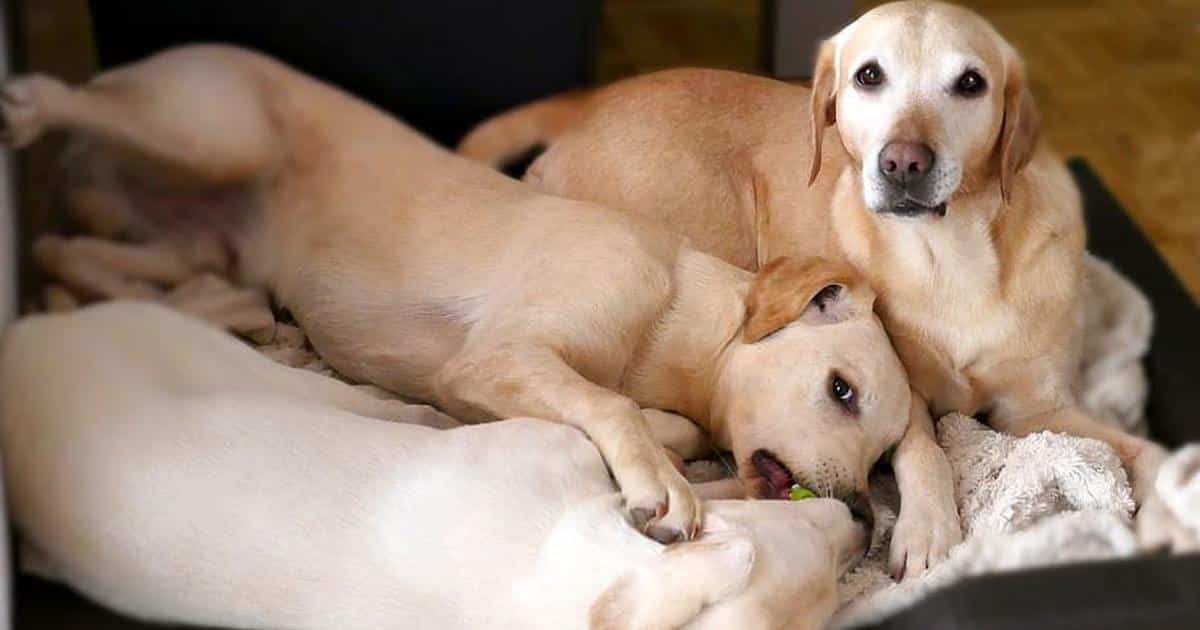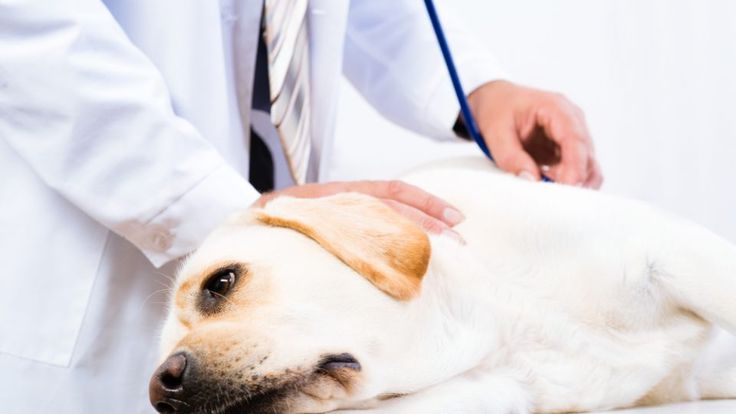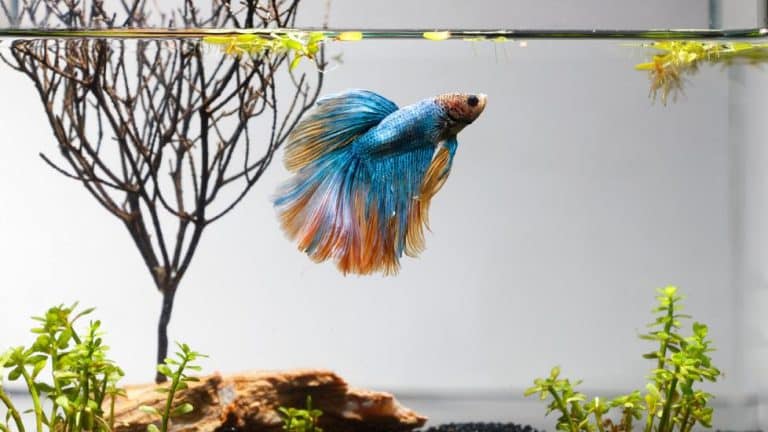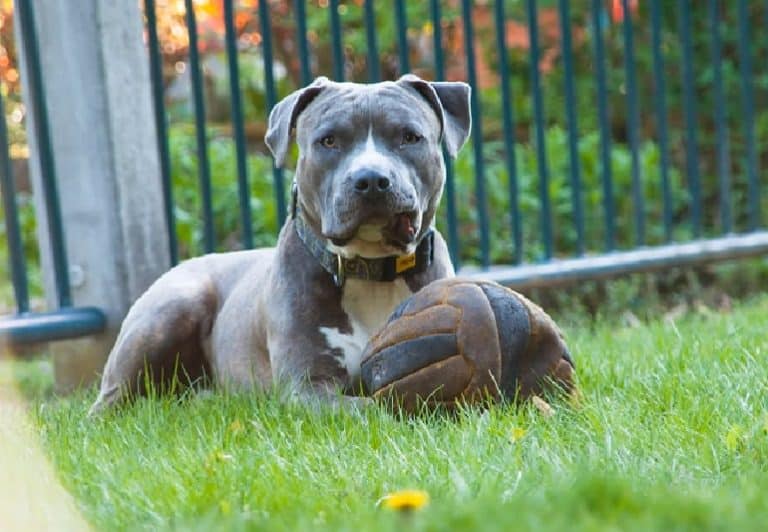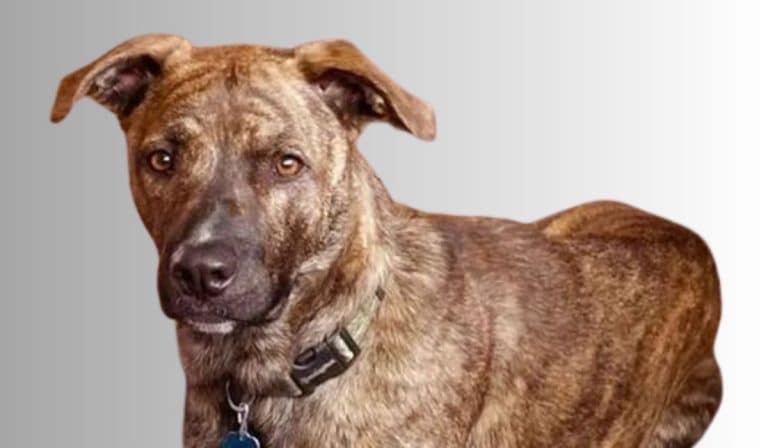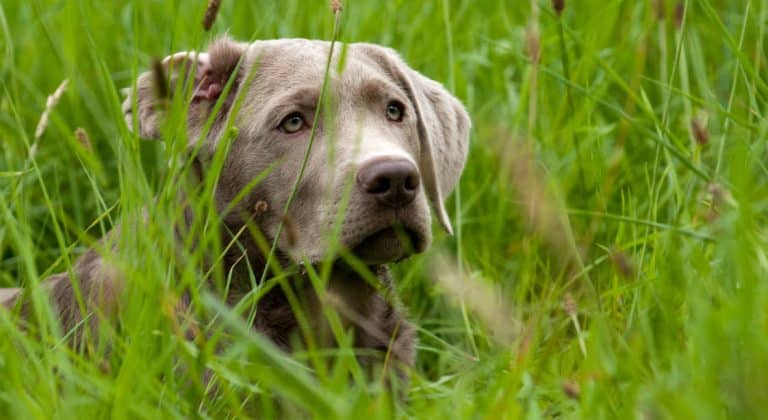Everything You Must Know About Neutering Your Dog
Neutering your dog has many benefits, but in a few cases, you are making a medically right decision for your fur baby. As a pet parent, you might have considered neutering an option for your dog. It is a great decision, without any doubt.
But the revolving myths and misinformation can be a hurdle. Neutering is safe for almost all dogs. It is an effective way to control breeding in dogs, the aggressive behavior of grown-up dogs, and help control health problems. Once you have neutered your dog, the next responsibility you have is to take care of your dog. This article helps you to answer every question you might have about neutering your dog.
Stay tuned to learn how to care for your neutered dog and what behavior changes to expect after neutering!
What is Neutering: Why is It Needed?
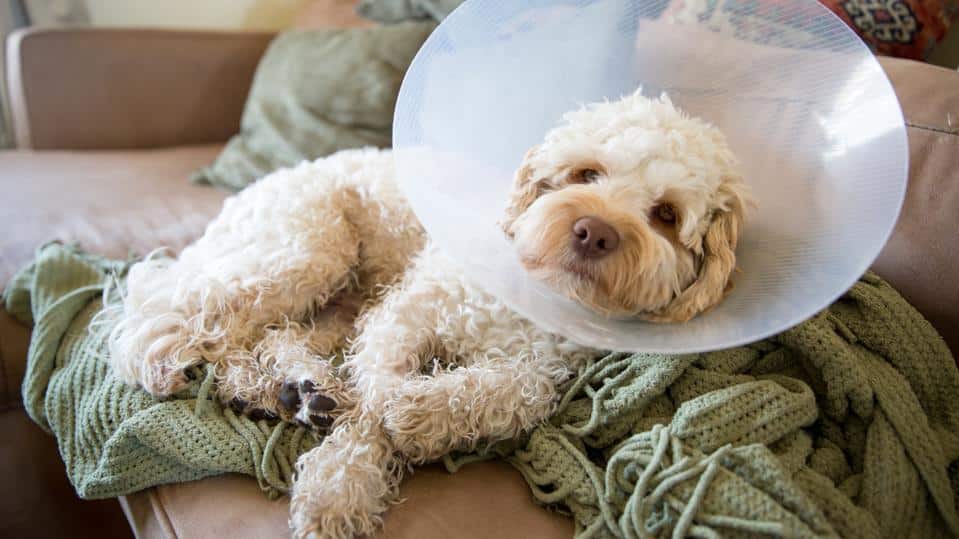
Neutering is a medical procedure performed on male animals to help them sterilize. Sterilizing a dog means it loses its ability to reproduce and makes the dog infertile. In this medical procedure, the testicles of dogs are surgically removed. A similar procedure performed on female dogs is called spaying, where their ovaries and/or the uterus are surgically removed.
Neutering is now a very common practice among pet owners because of all the benefits it offers, like protection from testicular cancer, prostate disease, and perianal tumors. In addition, if your dog is causing trouble because of his aggression or roaming behavior, neutering can also help tackle it.
Changes in Male Dogs After Neutering
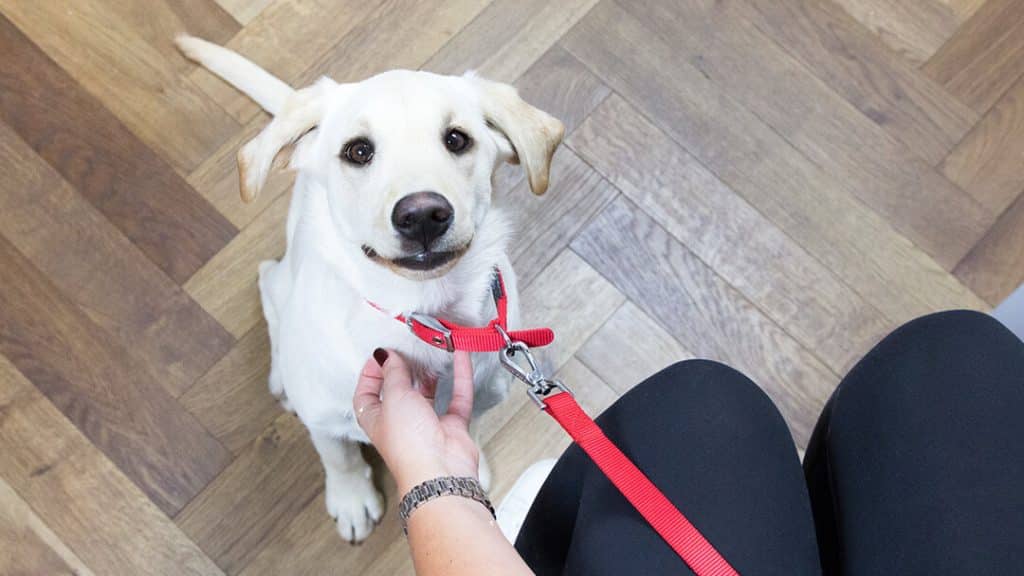
- As your dog grows, adulthood can be full of surprises for you (the dog owner) and the dog. As the dog reaches near sexual maturity, it changes because of a hormone change. For example, your dog might be more aggressive towards other male dogs. With a growing dog, the behavioral changes are normal.
- Just like a dog’s behavior changes as he grows, there are a few behavioral changes you will notice in your dog after neutering. Activities and behavior patterns dictated by testosterone will be greatly influenced after neutering. This is because the hormone is produced by testes, which are surgically removed.
- The dogs are no longer seeking mating and chasing female dogs, as the intensive mating drive is no longer present after neutering. Sexual behavior, sexual drive, territorial behavior, etc will be influenced.
1. Aggression
One behavioral change observed in a lot of dogs after neutering is aggression. In the long run, neutering makes the dogs calmer, but if we only talk of time immediately after the surgical process, your dog might be a bit more aggressive. Aggression is linked to the change in hormones.
The reason why there is not an immediate reduction in aggression is that the hormones might take a while to dissipate from the system of the dogs after the surgery. In addition to being less aggressive, the dogs will wander off less frequently because of an absent mating drive. The humping will also decrease dramatically.
It is normally expected that there will be less urine marking (a territorial behavior in dogs). The dog is expected to become calmer because of changes in hormones. In some dogs, there might be changes related to confidence and/or fear.
2. Hormone-Driven Anxiety
Hormone-driven anxiety is not discussed that often, but neutering can also be helpful for dogs that suffer from anxiety as they grow up. Note that anxiety caused only by hormonal factors will only be improved. If your dog suffers from anxiety and fear because of factors like lifestyle, consultation from experts can help with the situation.
A Helping Hand for Your Dog After Neutering
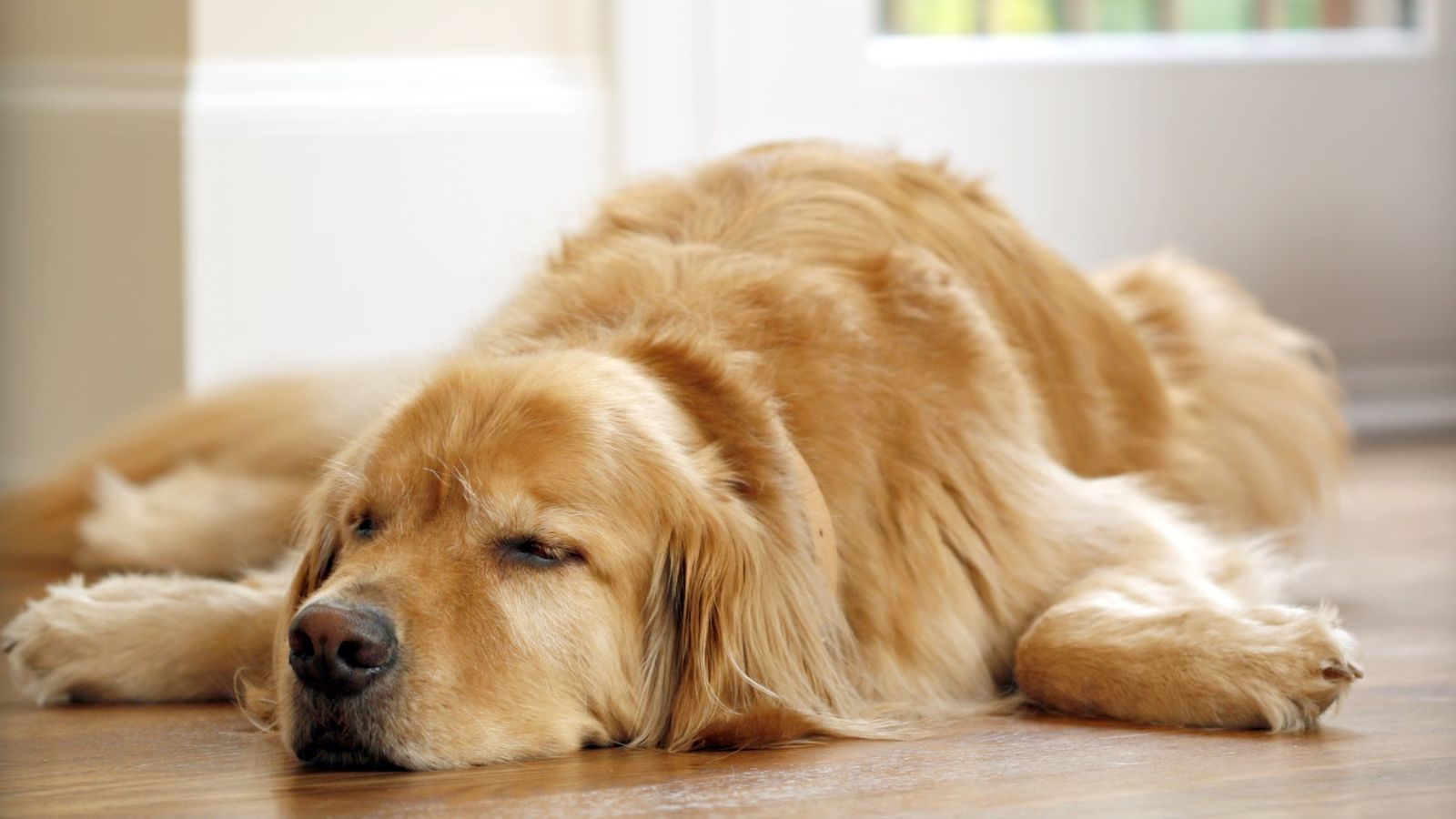
- Post-operative care for your dog is essential for making the medical procedure an easier process for your dog. While most of it will cover post-operative care and medications, support as a pet owner can be helpful for the recovery of your dog.
- Natural supplements can be helpful for your dog to overcome uneasiness and cure anxiety that is persistent after the surgery. Consult your doctor for natural supplements that will specifically be tailored to the needs of your dog.
- Allow your dog to take as much rest as possible in the safe environment of your home. Taking sufficient rest will help the dog heal faster and regain its strength.
- Help your dog to find comfort by creating a safe environment for his post-op care.
- Give post-operative medications as directed by the veterinarians to relieve pain after the operation.
- The dogs usually take a few weeks to heal from the surgery, so it is necessary to keep your dog quiet as he heals. Sometimes, the veterinary doctors will also prescribe a few sedative medications to help the dogs maintain their composure after the surgery.
- After the surgery, it is advised not to let your dog be physically active. At the same time, mild dog exercises can be chosen only after consultation with the doctors. Roughhousing is one thing your dog must not be doing after neutering.
- Neutering is not just for birth control in animals but also a measure to protect from the dangers of a few serious health problems. In some cases, the reason for neutering is to prevent a medical condition, follow up with appointments to enable check-ups and monitor the progress.
- Your dog might likely lick or chew the operated area. Animal care items like sleeves, collars, or onesies are used to stop your dogs from licking the wound.
Debunking Myths About Neutering
Let us talk about popular myths many pet parents are often confused about.
- It is a myth very popular among pet parents that neutering results in pets becoming overweight and less active. Veterinarians claim that with a proper diet and exercise routines, there is no way neutering will cause your dog to become less active. A sedentary lifestyle might be one reason your dog may be gaining weight. Just after the surgery, the dogs as patients are expected not to be too active, but as the dogs heal with time, the diet and exercise needs must be met.
- Most pet owners believe that neutering means a lot of pain to their furry babies. Like all other surgeries, neutering will be followed only under anesthesia. This means your dog will not feel anything during the surgery. Once the effect of anesthesia withers off, you will be provided with needed medicines that will make healing as comfortable as possible.
- Another concern of most pet parents is strange behavior after neutering a dog. While it is true that there is a behavior change after neutering, it is not necessarily adverse. In most cases, it helps tackle aggression and territorial behavior in dogs caused by increased testosterone levels.
- Like strange behavior after neutering a dog, many parents doubt the safety of neutering. Many parents consider neutering to be unsafe for their pets. Neutering can be helpful to dogs that have increased risks of cancer, urinary troubles, etc. But early neutering can also be unsafe for your dog. So, if you are considering neutering your dog, choose a clinic that helps you make informed decisions.
- It is not shocking to know that veterinary visits are often very costly. Many pet parents often assume the procedure for neutering will cost a lot of money. The cost of the surgery will vary with different clinics. While it is not cheap, with some research, you can find affordable options to neuter your dog. Be sure to choose a reliable clinic.
- Your dogs, especially female dogs, will not feel empty without a litter. A lot of people argue that dogs must be able to mate and have at least babies once before they get neutered or spayed. There are no proven studies that show having babies before animals get neutered benefits the pets.
- Neutering your dog will not emasculate him. Hormones are very much needed for the ideal growth of dogs. The hormones produced by testicles in dogs are needed for the masculine influence in male dogs. But because the same hormones are unnecessary as the dogs have fully become adults, neutering will never emasculate the male dogs.
- The last myth related to neutering is that the dogs will mourn the loss of their reproductive capabilities. Unlike us humans, the reproductive instinct of animals, including dogs, is limited to their survival. Dogs do have feelings, but they can not rationalize them like we do.
Strange Behaviours of a Dog Change After Neutering
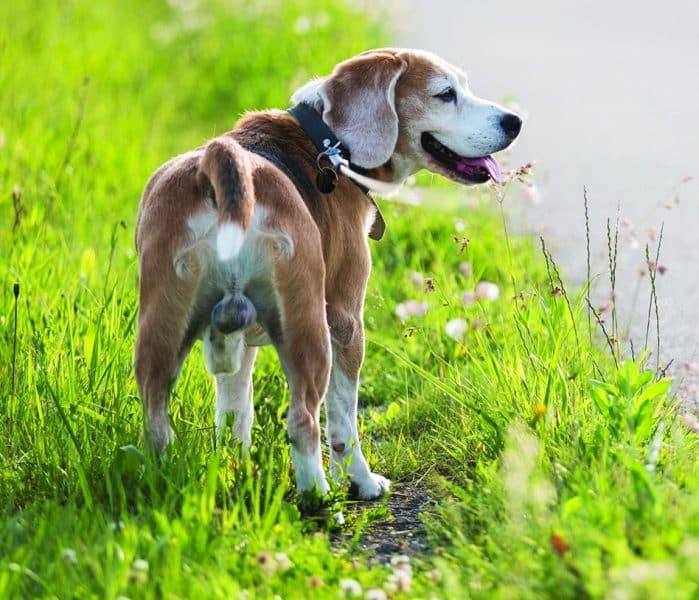
- If you have a dog that has recently been neutered, your dog might show a few signs of discomfort. Most of the behavior changes are explained by veterinarians after neutering, but your concern for your pet is justified. Here is a discussion about strange behavior after neutering a dog will typically show.
- Neutering is often associated with a reduction in the aggression levels of your dogs. But right after surgery, the dog might be more aggressive. The surgery causes them to feel discomfort and disoriented, which is why the dogs may be more aggressive soon after they wake up from the surgical procedure. Pain, new people during the operation or post-operative care, and hormonal changes might be the reasons why dogs are aggressive immediately after neutering.
- If your Dog has a discharge that smells foul, it might be a sign of infection. Contact your doctor immediately for an inspection. Learn about what is normal in case of discharge from the wounded area.
- It is normal for the incised area to be swollen, but if you think the swelling is unusual, it is advised that you seek an appointment with your doctor.
- In addition, if your dog has a fever, it can show the presence of infection. If the wounded area, ears, or head feel too hot, this can mean infection in your dog’s system.
- Another strange behavior you might notice in your neutered dog is that he is getting up from his designated place that often. It is not a concern because the dog might be facing nausea. Nausea is very common after surgeries in both humans and animals. For the first day after neutering, if your dog vomits, it is not a major threat to the health of your dog. Consult immediately if nausea and vomiting continue even after a few days of the neutering.
- As neutering helps decrease the sexual drive of the dogs, it can also make the dog feel depressed or anxious. This is because neutering deprives the dog of hormones that lead to the sexual drive of the dog. It is recommended that the dogs are given sufficient time to lift their mood on their own. Provide them with a supportive and caring environment to overcome their negative feelings.
- Neutering will require a follow-up rest period for your dog to heal from injury. While it is fine for your dog to take time to heal, lethargy can be a behavior you might be concerned about. This can often lead to low levels of energy in dogs and problems like depression in your pet. Weak appetite, loss of interest in things that your dog loves doing, or spending most of the time lying down are a few things that might indicate lethargy as a concern for your dog.
- In some dogs, clinginess and confusion can also be observed. The dog may suffer from anxious feelings, which can make the dog feel more confused. Anxiety can also make the dog extra clingy. How long after neutering does behavior change for dogs will depend on individual species and breeds. Some dogs might not even face it. To make it easier for your dog to overcome the discomfort, ensure you provide support, care, and love to your pet.
- Another way you might observe your dog behave differently is by being uneasy very often. No matter how much you comfort your fur baby, it is saddening to see your dog being uneasy. Some ways to find out if your dog is facing nervousness or unease are to look out for signs like separation unease (for your dog, it might be hard to be alone), excessive barking, or hiding. It is okay for your dog to show these signs, and your support can calm the dog in a while. But if the signs stay for too long, you need to consult your doctor soon.
- Another behavior that is concerning for dogs after neutering is incontinence. Incontinence means the passing of urine involuntarily. While it is not very common in male dogs (incontinence is more common in female dogs), it is better to look out for the signs, even in male dogs.
- Redness around the incision is to be looked for closely as well. Redness is common and will be present near the wounded area. But know what is normal and what can be a warning sign for the health of your pet.
How to Monitor Neuter Surgery Incision
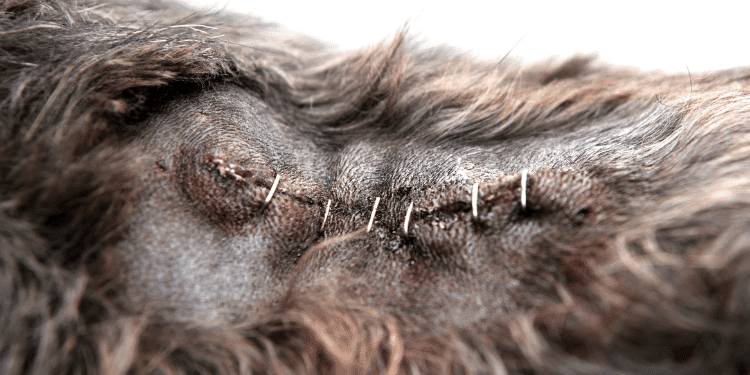
As a pet parent, you will have to watch out and take care of your dogs after neutering. Dogs might likely try to lick their wounds. There are chances of infections as well in the wounds. It becomes necessary to look for any signs that might be concerning closely. Here is how you can look for any warning signs in the surgery incision and care for the incisions.
- Neutering is almost a painless surgical procedure with anesthesia and pain-relieving medicines. Sutures, also called stitches, now use absorbable materials and are usually not visible on the outer skin. Often, stitches are made of unabsorbable materials, which the veterinarians will remove once your pet has healed.
- The stitches will usually have inflammation with a red to pink colored incision. As your dog heals, the wounds may also itch. Many pets end up licking or scratching the stitches of the body, which might result in complications like infections.
- Here is how you can monitor the neutering surgery incision and see how our pet is healing.
- You must check your dog’s incision frequently, especially when the surgery has been recently done. The incisions must be monitored closely for about 7-14 days after the surgery.
- Check for incisions in the morning and the night. Immediately check the incision to see if your dog is showing weird behavior.
- The things you must monitor when checking the incision will include color, swelling, or discharge. Talk to your doctor about what is normal and what is not. If anything looks suspicious, let your doctor examine the situation.
- It is very common for pets to scratch or lick the wounded area. To help your pet to avoid it, invest in some collars. T-shirts or bandages that help with the situation.
- Give your dog the prescribed medicines on time and strictly follow the post-op care routine suggested by your doctor.
- Avoid water to come in contact with the wounded part of the body.
Summing Up
Neutering is a common practice that helps both dogs and pet owners. It is a medical procedure that many pet parents opt for to reduce unwanted pregnancies. As the surgery proceeds with the removal of male reproductive organs, a dog will require extra care.
Neutering is often associated with behavioral changes like dogs becoming less aggressive. The strange behavior after neutering a dog will vary with different species. Many myths are associated with neutering, so before believing anything you hear online, you must believe only after thorough research.
Let us know your experience with neutering your dog in the comments below!

